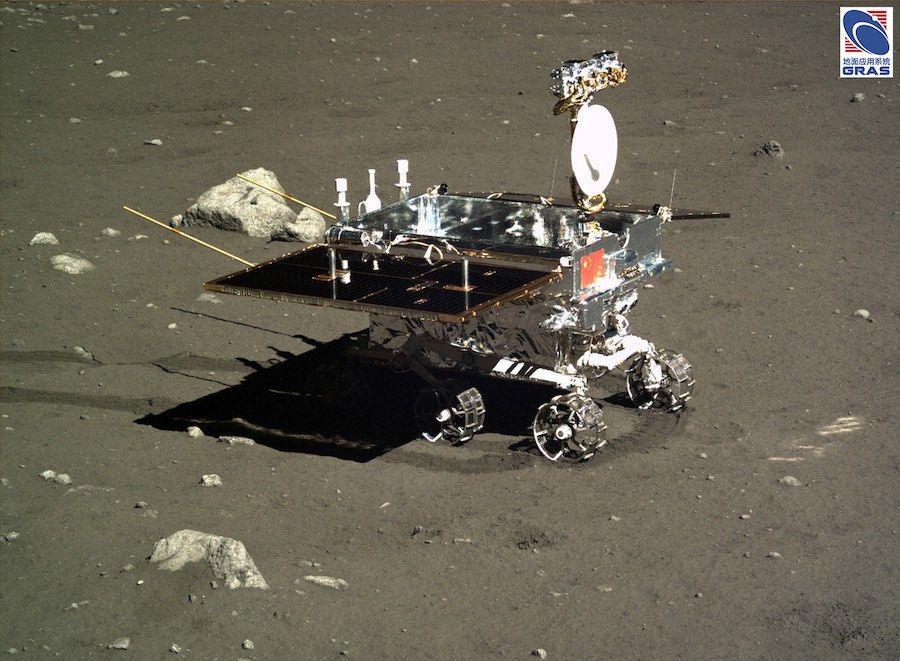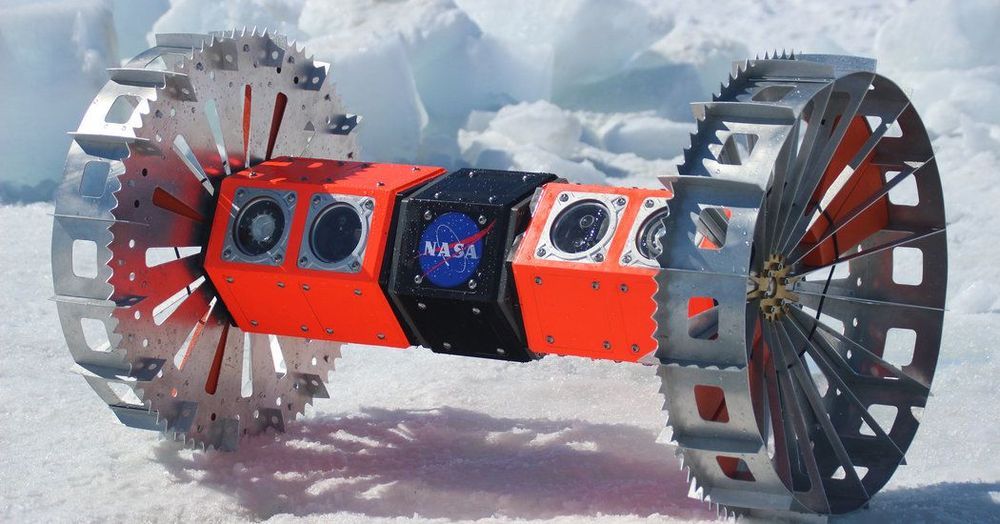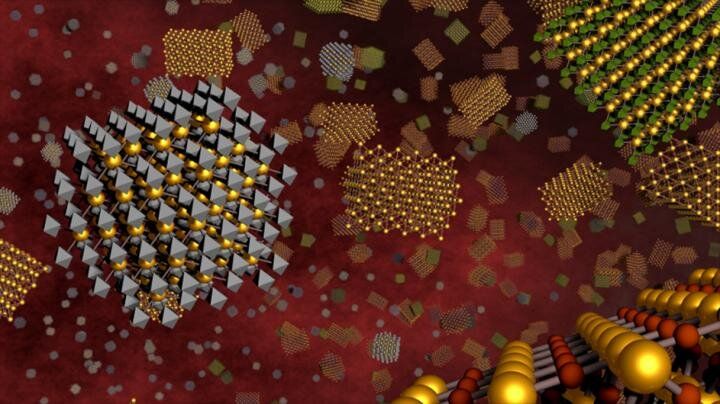Category: space – Page 860

China publishes Chang’e 4 data one year after first landing on far side of the moon
Chinese officials marked the one-year anniversary of the Chang’e 4 mission’s historic first soft landing on the far side of the moon Friday with the public release of data collected by scientific instruments and cameras on the lunar lander and rover.
The Chang’e 4 lander and Yutu 2 rover landed together on the lunar surface Jan. 3, 2019, marking the first time a spacecraft has ever safely touched down on the far side of the moon.
Around 12 hours after touchdown, the Yutu 2 rover drove down a ramp to disembark from the Chang’e 4 mission’s stationary landing platform to begin exploring the barren lunar landscape.
The Surprising Possibility That There are Still Active Volcanoes on Venus
Despite the similarities our world has with Venus, there is still much don’t know about Earth’s “Sister planet” and how it came to be. Thanks to its super-dense and hazy atmosphere, there are still unresolved questions about the planet’s geological history. For example, despite the fact that Venus’ surface is dominated by volcanic features, scientists have remained uncertain whether or not the planet is still volcanically active today.
While the planet is known to have been volcanically active as recent as 2.5 million years ago, no concrete evidence has been found that there are still volcanic eruptions on Venus’ surface. However, new research led by the USRA’s Lunar and Planetary Institute (LPI) has shown that Venus may still have active volcanoes, making it the only other planet in the Solar System (other than Earth) that is still volcanically active today.
This research, which appeared recently in the journal Science Advances, was led by Dr. Justin Filiberto – a staff scientist with the LPI. He was joined by fellow-LPI researcher Allan H. Treiman, Martha Gilmore of Wesleyan University’s Department of Earth and Environmental Sciences, and David Trang of the Hawai’i Institute of Geophysics and Planetology.


Researchers Crack Newton’s Elusive ‘3-Body’ Problem That Has Baffled Scientists for Centuries
It’s been nearly 350 years since Sir Isaac Newton outlined the laws of motion, claiming “For every action, there is an equal and opposite reaction.” These laws laid the foundation to understand our solar system and, more broadly, to understand the relationship between a body of mass and the forces that act upon it. However, Newton’s groundbreaking work also created a pickle that has baffled scientists for centuries: The Three-Body Problem.
After using the laws of motion to describe how planet Earth orbits the sun, Newton assumed that these laws would help us calculate what would happen if a third celestial body, such as the moon, were added to the mix. However, in reality, three-body equations became much more difficult to solve.
Steven Kwast | The Urgent Need for a U.S. Space Force
Starfleet Begins
Steven L. Kwast is a retired Air Force general and former commander of the Air Education and Training Command at Joint Base San Antonio-Randolph. A graduate of the United States Air Force Academy with a degree in astronautical engineering, he holds a master’s degree in public policy from Harvard’s Kennedy School of Government. He is a past president of the Air Force’s Air University in Montgomery, Alabama, and a former fighter pilot with extensive combat and command experience. He is the author of the study, “Fast Space: Leveraging Ultra Low-Cost Space Access for 21st Century Challenges.”
Beginning in 2010, and coinciding with the opening of Hillsdale College’s Allan P. Kirby, Jr. Center for Constitutional Studies and Citizenship on Capitol Hill, the College has hosted an annual Constitution Day Celebration in Washington, D.C. to commemorate the signing of the U.S. Constitution on September 17, 1787.
The program—which features speeches, debates, and roundtable discussions—explores the continuing relevance of the Founders’ Constitution for American politics today.
Hillsdale College is an independent institution of higher learning founded in 1844 by men and women “grateful to God for the inestimable blessings” resulting from civil and religious liberty and “believing that the diffusion of learning is essential to the perpetuity of these blessings.” It pursues the stated object of the founders: “to furnish all persons who wish, irrespective of nation, color, or sex, a literary, scientific, [and] theological education” outstanding among American colleges “and to combine with this such moral and social instruction as will best develop the minds and improve the hearts of its pupils.” As a nonsectarian Christian institution, Hillsdale College maintains “by precept and example” the immemorial teachings and practices of the Christian faith.

From dream to reality: Russia’s ‘Silicon Valley’ to mark 10-year anniversary with new projects
Russia’s Skolkovo innovation center, which is marking 10 years since its founding, has ambitious plans for 2020 and beyond to continue promoting technology and helping small innovative startups grow into profitable companies.
Skolkovo Technopark was built from scratch almost a decade ago to create a platform for research and innovation in key spheres such as energy, IT, space, biomedicine, and nuclear technology. Now the complex has facilities spread around 800,000 square meters and hosts around 500 startups, while there are an additional 1,500 enterprises beyond its campus. Skolkovo hosts around 50 research centers employing more than 15,000 people.

A quantum breakthrough brings a technique from astronomy to the nano-scale
Researchers at Columbia University and University of California, San Diego, have introduced a novel “multi-messenger” approach to quantum physics that signifies a technological leap in how scientists can explore quantum materials.
The findings appear in a recent article published in Nature Materials, led by A. S. McLeod, postdoctoral researcher, Columbia Nano Initiative, with co-authors Dmitri Basov and A. J. Millis at Columbia and R.A. Averitt at UC San Diego.
“We have brought a technique from the inter-galactic scale down to the realm of the ultra-small,” said Basov, Higgins Professor of Physics and Director of the Energy Frontier Research Center at Columbia. Equipped with multi-modal nanoscience tools we can now routinely go places no one thought would be possible as recently as five years ago.”
Moon Phases 2020
🌖 What will the Moon look like throughout 2020? Using data from our Lunar Reconnaissance Orbiter to visualize with unprecedented fidelity, NASA Goddard’s Dial-a-Moon shows you the Moon each hour: https://go.nasa.gov/37sKofB
Watch a full year of Moon phases from the Northern Hemisphere: https://go.nasa.gov/2udsqPY
From the Southern Hemisphere: https://go.nasa.gov/2QHYt1U

There’s a Giant Mystery Hiding Inside Every Atom in the Universe
No one really knows what happens inside an atom. But two competing groups of scientists think they’ve figured it out. And both are racing to prove that their own vision is correct.
Here’s what we know for sure: Electrons whiz around “orbitals” in an atom’s outer shell. Then there’s a whole lot of empty space. And then, right in the center of that space, there’s a tiny nucleus — a dense knot of protons and neutrons that give the atom most of its mass. Those protons and neutrons cluster together, bound by what’s called the strong force. And the numbers of those protons and neutrons determine whether the atom is iron or oxygen or xenon, and whether it’s radioactive or stable.